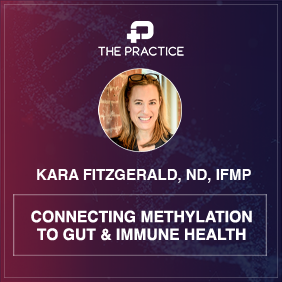Cardiovascular function can be strategically supported via targeted nutritional factors that support nitric oxide (NO) synthesis, which is essential for healthy endothelial function and blood flow. Arginine, citrulline, cocoa polyphenols, folate, vitamin C, and magnesium help protect and maintain NO synthesis, and therefore, preserve healthy endothelial function and blood flow.
This endothelial health animation video shows how various nutritional factors impact the NO synthesis pathway. Understanding these biochemical insights will help leverage targeted, personalized nutrition therapies to optimize endothelial health and function.
For a deeper dive, continue reading:
A complex system of vessels comprise the vascular system. The endothelial cell layer of blood vessels act as the interface between the blood and underlying vascular tissue. Endothelial cells respond to changes in blood flow and blood pressure and produce factors that mediate vessel wall changes like vasodilation. Healthy endothelial function and blood flow are associated with improved vascular health, optimized gene methylation, improved wound healing, support for inflammation initiation phases, and better sport and lifestyle performance.
Endothelial dysfunction can result in impaired blood circulation, increased platelet aggregation, and negatively impact the interaction between immune cells and the vessel wall; these are the early steps in the vascular disease trajectory, which can ultimately result in atherosclerosis and an increased risk for myocardial infarction and stroke. Furthermore, endothelial dysfunction contributes to oxidative stress, inflammation, methylation issues, high blood glucose, and aging. To reduce the risk of developing deleterious health problems, it is essential that clinicians know how to help their patients achieve and maintain a healthy vascular endothelium.
Nitric oxide (NO) production is essential for healthy endothelial function and vasodilation. Synthesis of nitric oxide via the enzyme endothelial nitric oxide synthase (eNOS) is dependent on a sufficient supply of the amino acid arginine from the diet. Arginine’s metabolites, including NO, are of paramount importance during all phases of the wound healing process, so arginine is considered “conditionally essential” during times of illness and wound healing, when sufficient dietary intake of arginine holds even greater importance. When there is an insufficient arginine supply, this can result in an uncoupling of the eNOS enzyme, which, in turn, may lead to an increased production of reactive oxygen species (ROS), which are harmful to the vascular endothelium. Citrulline, an organic byproduct of NO synthesis from arginine, can be converted by eNOS to arginine if needed; hence, citrulline intake can support healthy arginine levels.
Cocoa polyphenols are another nutritional compound that, research has demonstrated, plays an important role in endothelial function. Cocoa polyphenols support blood flow and protect NO synthesis by inhibiting the enzyme arginase, which as the name suggests, is responsible for the degradation of arginine. Arginase can increase during aging, hypertension, inflammation, and oxidative stress. Additionally, cocoa polyphenols support endothelial health by helping to stabilize the cofactor tetrahydrobiopterin (BH4), which is mandatory for eNOS function, which produces NO. BH4 stabilization and eNOS expression are also supported by key micronutrients: folate, vitamin C, and magnesium. In summary, arginine, citrulline, cocoa polyphenols, folate, vitamin C, and magnesium can help protect and maintain NO synthesis, and therefore, preserve healthy endothelial function and blood flow.
Clinical measurements of endothelial function are important because they provide incremental information beyond traditional risk markers and because they can help the clinician track their patient’s progress following targeted lifestyle interventions. Endothelial function measurements include vascular reactivity, blood-based biomarker ADMA, and salivary nitrate/nitrite levels. Patient population subgroups at increased risk of endothelial dysfunction may require additional, targeted nutritional support. These patient groups include those with high blood glucose, oxidative stress, inflammation, methylation issues, poor blood flow, cardiovascular disease or risk factors, and older adults (particularly as it relates to impaired wound healing).
Why is this Clinically Relevant?
Blood vessels throughout the vascular system contain an endothelial cell layer, the interface between the blood and underlying vascular tissue
Healthy endothelial function and blood flow are associated with improved vascular health, while endothelial dysfunction can result in a vascular disease trajectory, which can ultimately result in atherosclerosis and an increased risk for myocardial infarction and stroke
Endothelial function damage can result from a variety of factors, including high blood glucose, oxidative stress, inflammation, methylation issues, poor blood flow, cardiovascular disease or risk factors, and aging
Nitric oxide (NO) is essential to healthy endothelial function and blood flow
Arginine, citrulline, cocoa polyphenols, folate, vitamin C, and magnesium are nutritional factors that support NO production
Clinicians can leverage personalized nutrition therapies to optimize endothelial function in patients
The impact of targeted lifestyle changes on endothelial health can be evaluated via clinical measurements, including vascular reactivity, ADMA, and nitrate/nitrate levels






